‘The Seal Whisperer’ explores Ben Burville’s extraordinary passion for the seals of the Farne Islands.
BBC 1 – Our Lives Strand – 30th August 2024 & on BBC i-player
By day this busy GP is hard at work seeing patients in the coastal town of Sea Houses, Northumberland. In his spare time, he takes us beneath the waves to spend time studying the seals.
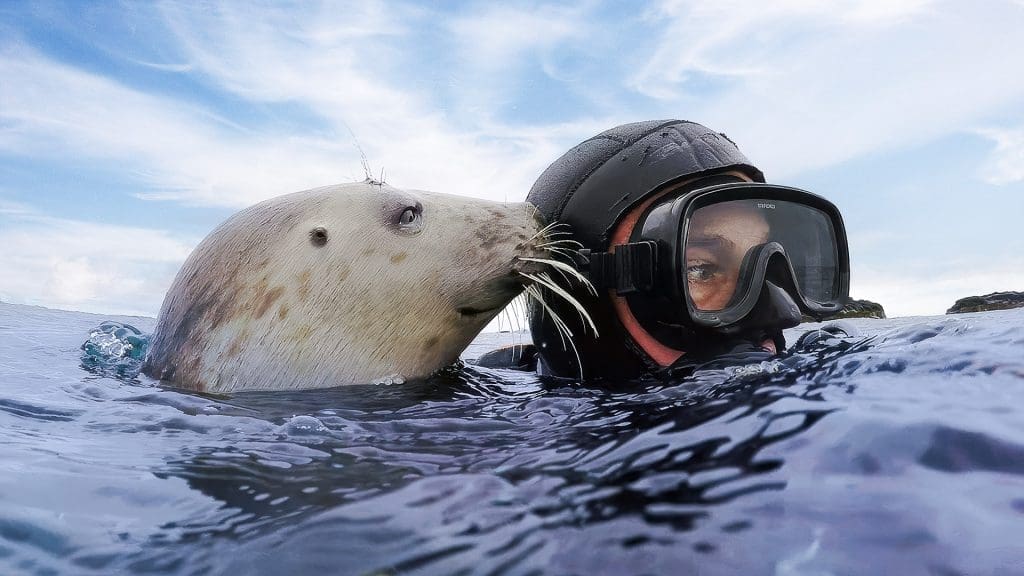
Being with them, in their world, is just an incredibly special feeling. And over the last twenty years, I’ve been really lucky to film seal behaviour that’s never been seen before.
Ben Burville
In this enchanting documentary made by first time director, Nathalie Grace, Ben shares his feelings at the importance of being able to spend time in the ocean.
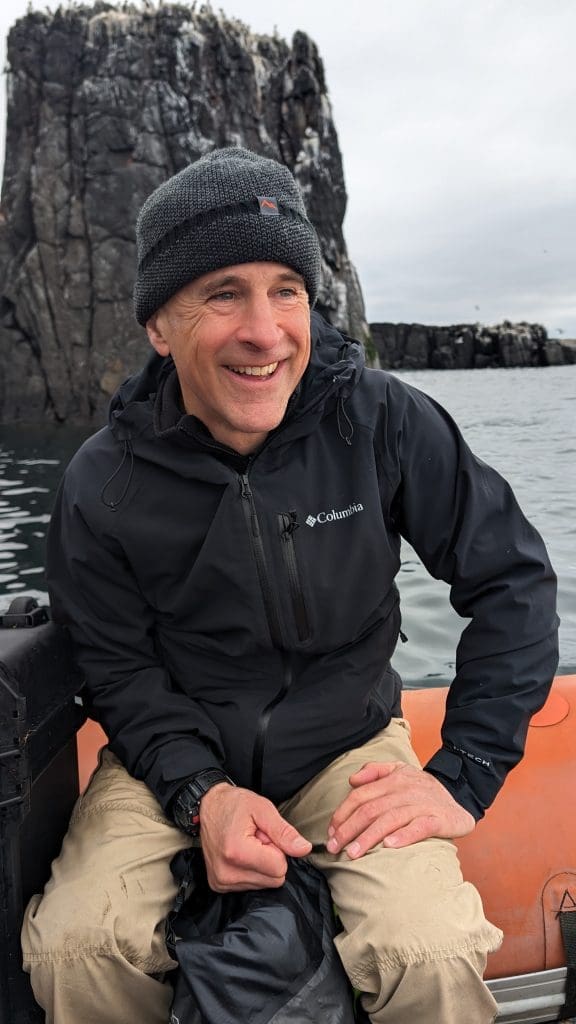
More than 1 in 5 people that I see have a mental health problem. I think time spent outside, just getting some fresh air, especially if you can combine that with wildlife, whether that’s seeing birds outside, or whether it’s studying seals, can really have a very positive effect on your mood.
Ben Burville
As a result of the time Ben spends studying the seals, he’s become a visiting researcher linked to Newcastle University. Some of the unique behaviours he’s filmed includes how males use sound, clapping their flippers together, to warn off other males during courtship. Other remarkable scenes include seals taking a nap underwater, to scooting along the seabed on their backs. Exactly why seals do this is still a mystery. There is no other way to learn about underwater seal behaviour, than to be in their world watching them.
Filming The Seal Whisperer
Filmed over 6 months, the film includes moving scenes of a young seal pup being rescued by the British Divers Marine Life Rescue (BDMLR) team after violent winter storms strand it on a Northumberland beach. It also covers the work of the Tynemouth Seal Rescue Centre. And as spring comes to the Farne Islands, he witness’s a spectacular transformation as puffins court, and tens of thousands of seabird’s return to the islands to breed.
I’m part of the Farnes Advisory Commitee which provides guidance on the management of the islands . It’s good to see the cliffs crowded with seabirds again. The last few years have been really tough for the Farne Islands. Bird flu devastated seabird numbers here, with some species numbers down by up to 80%.
Ben Burville
While all may appear in balance in this beautifully shot film, there’s some sobering messages. Litter is a major cause of seal deaths. And the seals, like the seabirds of the Farne Islands, all rely on sand eels. With numbers of these oil rich fish in steep decline in the North Sea, landmark legislation has just come in to ban the sand eel fishery. Despite this, the sand eel’s future is still far from certain. The EU is
challenging the bill, threatening the future of the seals, and all the marine life who rely on them.
The passion of a director
We’re really proud to support Nathalie ‘Nat’ Grace make her first film, and what a beautiful, revelatory and informative film it is. Nat has worked with us for the last two years, working on many of our marine films as an assistant producer. She’s made a beautifully crafted film, and also shot many of the scenes too. Her story gives viewers an in-depth look at seals lives, a revelatory insight into rarely seen underwater behaviours and also highlights some of the issues facing their survival.
Her choice of title was also very apt. The name ‘whisperer’ is used for individuals who develop extraordinary amounts of knowledge and skill with an animal. This is very much true of Ben. He’s spent thousands of hours underwater, watching them. Studying seals underwater really is the only way to observe the behaviour of this highly mobile species which spends some 70% of its life underwater.
Sarah Cunliffe, Executive Producer
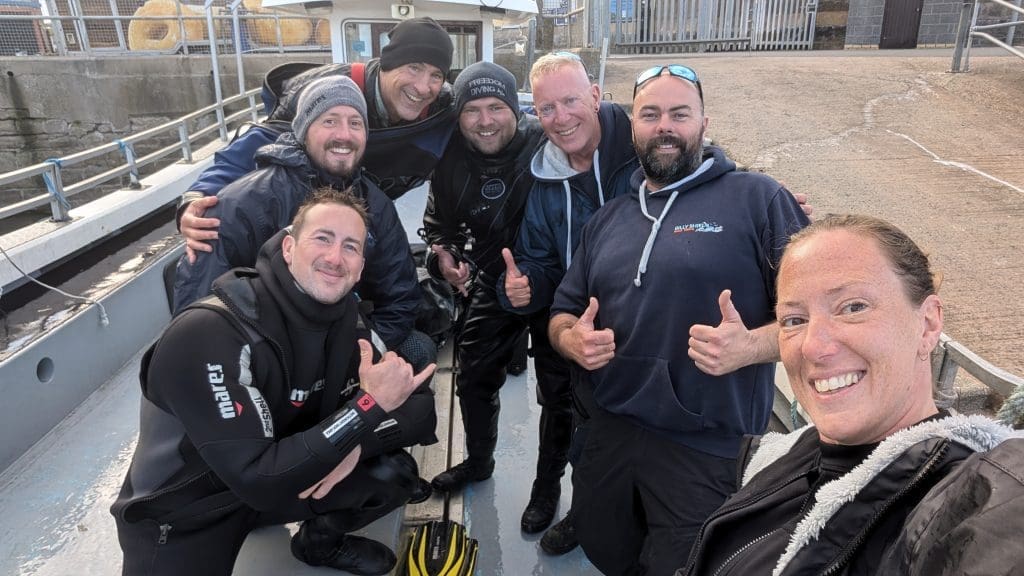
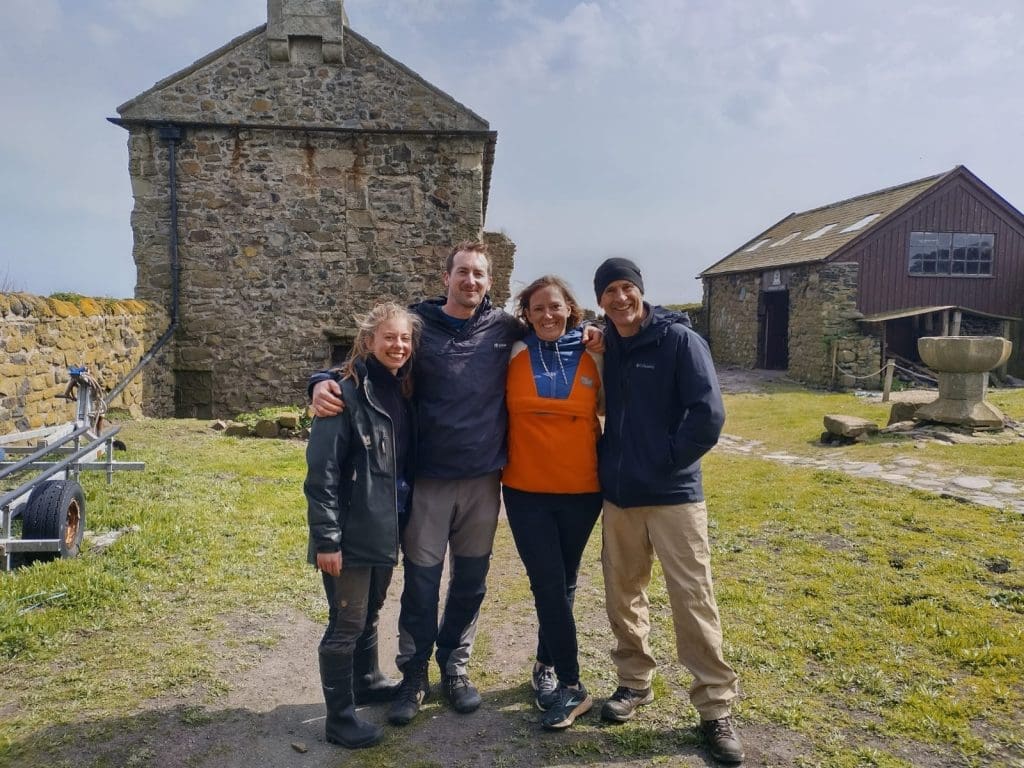
Dr. Ben Burville
Ben is a visiting Researcher at Newcastle University in the department of Marine Science. He has a special interest in marine mammals, specifically grey seals and white beaked dolphins. As a marine biologist with a degree in oceanography and marine biology from Southampton University, He went on to study medicine, became a GP but has maintained a lifetime interest in marine mammals every since.
With Newcastle University Ben has co-authored 11 marine mammal papers including ‘Percussive underwater signalling in grey seals’ published in the Marine Mammal Science Journal in 2020. One of his current projects is ‘Underwater photography as a non-invasive tool for health surveillance of white-beaked dolphins (Lagenorhynchus albirostris) off the coast of Northumberland, North Sea.’
https://www.researchgate.net/profile/Ben-Burville
I’ve spent more than twenty years studying seals. I never disturb or approach them. I just let them come to me. The public should never approach or disturb a seal for your safety and theirs. Seals can be dangerous. They have sharp teeth, powerful jaws and carry a range of bacterial that can be harmful to humans.
Ben Burville
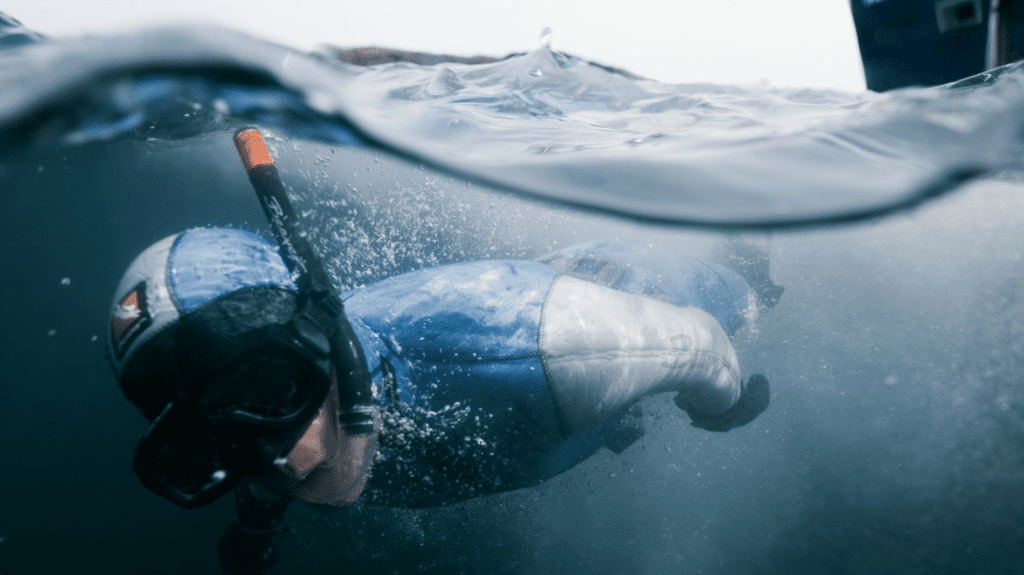
Farne Islands
The Farne Islands are home to possibly the most exciting seabird colony in England with 23 species, including around 43,000 pairs of puffins. It’s also one of the most important grey seal pupping sites in England, with more than 2,000 pups born every autumn.
Visit The National Trust website for more information
Grey Seals
Seals spend some 70% of their lives underwater. On top of that they are a highly mobile species that can travel up to 30 miles a day hunting for fish, sometimes going off for days at a time.
The big issues facing their survival are over fishing, global warming, marine pollution, seals being injured by boats, being shot at, and disturbance on the land by the public and dogs when they are hauled out. Seals are a highly mobile species spending up to 70% of their time underwater. They can travel long distances of hundreds of kilometres, heading offshore on foraging trips for up to 12 days at a time. In the water, they can travel some 30 miles per day. The Farne Island grey seals have been found to travel as far as Norway, and the coast of Scotland.
The UK has an estimated population of grey seals in excess of 120,000, with their numbers steadily increasing. Globally however, their numbers are in decline. Grey seals are listed as of ‘least concern’ on the iucn red list of threatened species .
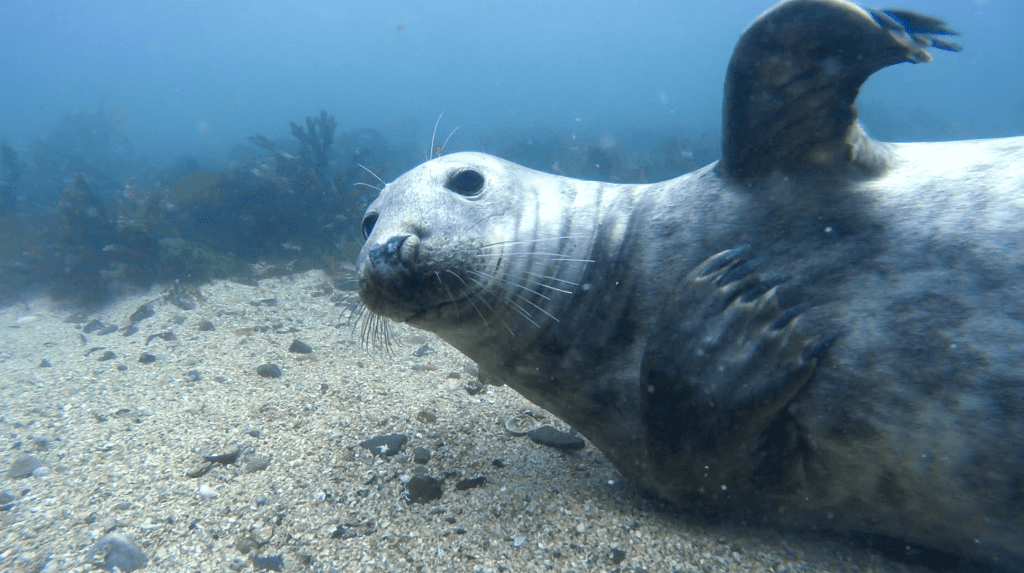
Bird Flu & the Farne Islands
In 2022, the highly contagious avian influenza, also known as bird flu, ripped through many species of seabird on the Farne Islands ,off the coast of Northumberland, and more than 6,000 birds perished. Some species lost up to 80% of their numbers.
For more information visit The National Trust website
Sand Eels
Puffins, Kittiwakes, Razorbills and other threatened seabirds have been thrown a lifeline, after decades of campaigning have finally succeeded in stopping industrial sand eel fishing in the English North Sea and in all Scottish waters. Sand eels are key stone species and a critical food source for seals as well.
For more information visit The RSPB website
EU Challenge
The endangered puffin – one of Britain’s most iconic seabirds – is at the centre of a row over the UK’s post Brexit freedoms. The UK recently banned fishing in the North Sea for the bird’s favourite food, the sand eel. But the European Union is demanding the ban be lifted, claiming it breaches the UK’s post-Brexit breakup deal. The future of our wildlife is still at risk.
For more information – BBC Article
Publicity
Amble GP, the seal whisperer - Northumberland Gazette
I'm a real life Dr Dolittle - Mirror
"This charming film.." Pick of the Day - Guardian
"First time director.." - Broadcast
Pick of the day - i- news
Critics choice - quality film - Times
Meet the Seal Whisperer - BBC Sounds
This charming one-off - Critics choice - Telegraph
This moving documentary - Pick of the Day - Virgin Media
- Producer/ Director: Nathalie Grace
- Editor: Dave Fricker
- Photography: Ben Burville
- : Nathalie Grace
- : Nicki Meharg
- : Josh Tarr
- Water Safety Supervisior: James Harman
- Water Safety Team: Dan Phillips
- : Kieron Fox
- : Michael Craig
- : Nicki Meharg
- : Oliver Shiel
- : Tom Crabbe
- : William Shiel
- Archive: Nature Footage
- : Pond5
- Thanks to: Coquet Medical Group
- : Debbie Harrison-Hardy
- : National Trust
- Music : Extreme Music
- : Universal Music
- Post Production: The Edit, Brighton
- Colourist & Online Editor: Josh Cordell
- Dubbing Mixer: Ross Millership
- Edit Assistant: Phill Brown
- Head of Production : Nina Lowes
- Junior Production Manager: Harry Harris
- Researchers: Bobby Cross
- : Amanda Fairey
- Head of Finance: Pete Dunkerley
- Executive Producer for Big Wave : Sarah Cunliffe
- Commisioning Editor for the BBC: Diana Hare
